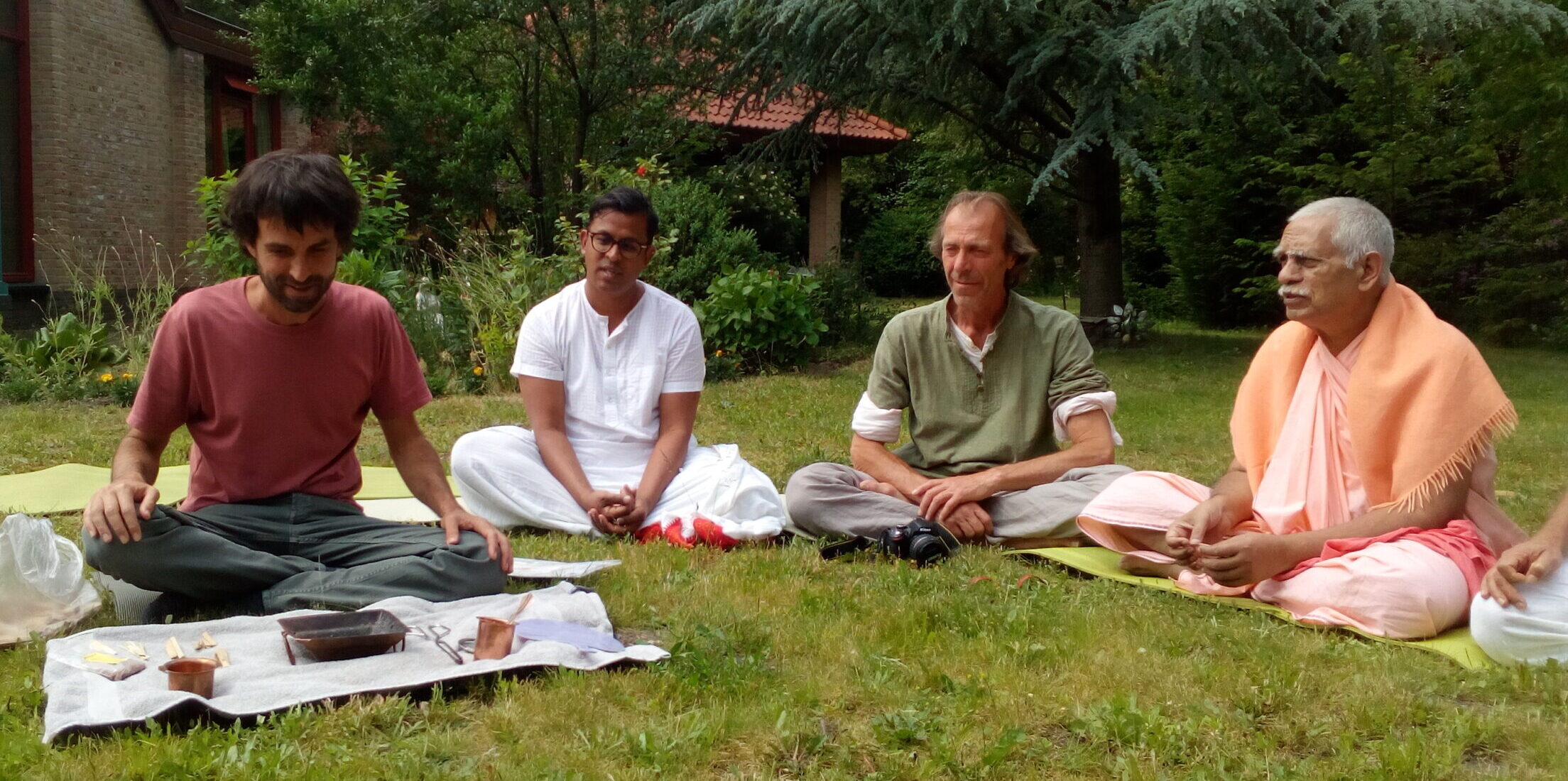
Lecture 2/5. Netherlands, 2018.
This is the second lecture of a weekend retreat in the European summer of 2019. The overarching theme for this retreat was understanding the Ego, and how to work with it to achieve lasting happiness. In this lecture Swamiji presents two main ideas: The Game of Obligation, and the Busy-ness of the “I”, as ways to help us see how our Ego is working within ourselves.
The other lectures in this series are:
Interpretation
Busyness of the “I”
Each individual has an “I” within, but each is part of a greater whole. Just as a river is made of many drops.
In the opening of the Bhagavad Gita we are shown duality. Krishna rides to the middle of the battlefield surveying the two armies; one on either side. This position requires a decision.
Automatically we start to evaluate, compare and think – the “I” must make a choice. This is the benefit and disadvantage of this position.
The more we think, the less time there is to do. And so, we feel the pressure of time. We develop this habit of keeping ourselves busy, creating our own suffering.
We keep ourselves busy by not evaluating properly, and not providing ourselves with rest. Then, at the end of the day we feel exhausted rather than happy.
Why does this happen? The “I” has projected the idea of “I am managing”. But is it?
We must learn to accept reality as it is.
Game of Obligation
In any interaction between people there must be a giver and receiver. One exists because of the other. We can see this in the Yoga Sutras, Sadhana Pada, Verse 3.
But the “I” does not like to be under obligation to another, it likes to oblige. This “giving”, is the position of power. It is a game played, by the “I” trying to prove their superiority, to bring the other “I” under obligation.
Why does the “I” deliberately prepare the agenda to get exhausted and to be unhappy? “I” doesn’t like to be the receiver, to be on the negative side; to lose.
You can try to fill the cup, keeping yourself busy, reaching 99.99% full but you will always be missing something.
The “I” needs to accept that we will always be half full and half empty. We will oscillate from plus to minus and back again. In this way we will be complete, yet half full.
We keep ourselves busy to avoid the real confrontation with our Self. And, in this way we develop an emotional imbalance.
Archived by:
Claudia Persche
Approximate date item occurred: 2018-06-09
Tags:
